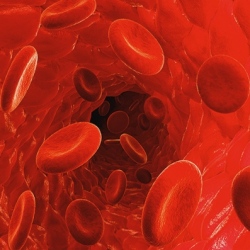
Scientists found a single dose of the protein Hi1a worked on lab rats. They said it showed "great promise as a future stroke treatment" but had not yet been tested in human trials. The Stroke Association said the research was at its early stages but it would "welcome any treatment that has the potential to reduce the damage caused by stroke".
The researchers, from the University of Queensland and Monash University, travelled to Fraser Island in Australia to hunt for and capture three potentially deadly Australian funnel web spiders.
"We regularly collect spiders from Fraser Island off the south coast of Queensland," explained lead researcher Prof Glenn King.
"The reason for this is that funnel-web spiders dig burrows that can be as deep as 20-30 cm. Thus, digging them up from hard clay soils is very difficult. Fraser Island is a sand island which makes it easy for us to extract the spiders from their burrows."
The team then took the spiders back to their laboratory "for milking".
This involved coaxing the spider to release its venom, which could then be sucked up using pipettes.
